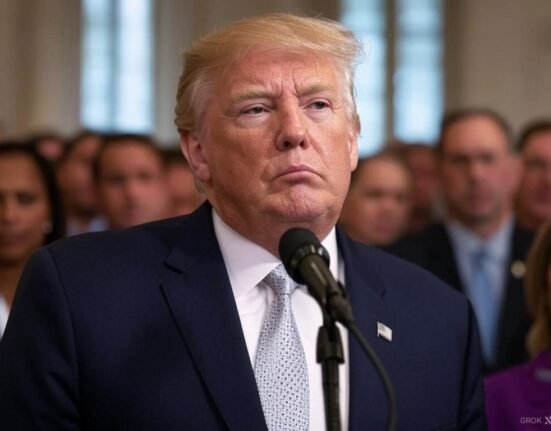Financial risk oversight plays a critical role in the stability of an economy. It prioritizes monitoring and managing potential financial threats that could lead to adverse consequences such as systemic crises. This oversight involves a series of systematic evaluations and regulations designed to identify vulnerabilities within financial institutions and markets. By proactively addressing these risks, authorities aim to preserve market integrity, enhance transparency, and maintain public confidence in the financial system.
The significance of financial risk oversight is underscored by historical events, where lapses in monitoring practices have precipitated financial upheavals. For instance, the 2008 financial crisis starkly illustrated the repercussions of inadequate risk management and regulatory frameworks. Such crises can lead to widespread unemployment, loss of savings, and can even destabilize entire economies. Consequently, establishing robust oversight mechanisms is essential for preemptively mitigating financial risks and fostering an environment of economic resilience.
Furthermore, effective financial risk oversight is vital for maintaining a level playing field within the financial system. By ensuring that institutions adhere to established regulations and capital requirements, the potential for exploitation or reckless behavior is significantly diminished. This is particularly important in an era marked by rapid technological advancements and evolving financial products, which can introduce new risks that are not yet fully understood. Through vigilance and comprehensive risk assessments, regulators can better safeguard the financial landscape against emerging threats.
As the political landscape shifts, so too may the regulatory environment that supports financial risk oversight. Concerns have been raised about the potential weakening of oversight bodies, which could lead to a resurgence of the very vulnerabilities that past crises have exposed. In light of these concerns, it is imperative for decision-makers to recognize the critical importance of robust financial risk oversight in preserving economic stability and preventing potential systemic failures.
Background: The Role of the Financial Stability Oversight Council (FSOC)
The Financial Stability Oversight Council (FSOC) was established in response to the financial turmoil experienced during the 2007-2009 crisis. This period revealed significant vulnerabilities within the U.S. financial system and underscored the need for a comprehensive regulatory framework capable of addressing systemic risks. Formed under the Dodd-Frank Wall Street Reform and Consumer Protection Act of 2010, the FSOC aims to foster a stable financial environment by overseeing the nation’s financial institutions and markets.
As a multi-agency body, the FSOC is composed of principal financial regulators, including the Secretary of the Treasury, the Federal Reserve Chair, and leaders of various regulatory agencies such as the Securities and Exchange Commission and the Commodity Futures Trading Commission. This diverse composition allows for a more holistic approach to identifying threats to financial stability. The FSOC’s primary responsibilities include monitoring systemic risks, providing recommendations to enhance the resilience of the financial system, and coordinating responses among these regulatory bodies to address any emerging threats.
One of the critical functions of the FSOC is to identify entities that may pose a risk to the overall stability of the financial system. This involves a rigorous analysis of financial institutions, markets, and practices to ensure that potential vulnerabilities are identified and mitigated promptly. By assessing interconnectedness and potential contagion risks, the FSOC works to prevent situations that could lead to widespread financial distress.
In addition to risk identification, the FSOC collaborates with domestic and international regulatory agencies to enhance communication and ensure a cohesive response to financial challenges. This cooperative effort is crucial in today’s interconnected global economy, where the actions of one sector can rapidly impact others. Consequently, the FSOC plays a vital role in maintaining oversight and promoting a robust, stable financial system that can withstand future shocks.
Yellen’s Warning: Risks of Weakening Financial Oversight
In recent statements, Treasury Secretary Janet Yellen has articulated significant apprehensions regarding the prospective weakening of financial oversight mechanisms. Her concerns primarily revolve around the detrimental implications that a diminished council capability could have on the overall financial stability of the nation. The Financial Stability Oversight Council (FSOC), which Yellen oversees, plays a crucial role in identifying and addressing systemic risks that could jeopardize the economy. A reduction in resources and workforce within such a vital entity can impair its functionality significantly.
The potential ramifications of a decreased operational capacity are noteworthy, particularly in the context of risk identification and response efforts. If the FSOC’s ability to monitor emerging risks diminishes, the consequences could manifest in the form of delayed reactions to financial distress signals. Such delays can exacerbate vulnerabilities within the financial system, leading to a greater likelihood of crises that might have otherwise been averted. Coordination among regulatory agencies is essential for effective oversight, and a lack of communication can result in fragmented approaches to addressing risks. This fragmentation can hinder the capability to create cohesive strategies that protect the broader economy.
Moreover, Yellen highlights that as the financial landscape becomes increasingly complex with evolving markets and innovative financial instruments, it is imperative that oversight bodies possess the necessary tools and personnel to effectively evaluate and mitigate these risks. The reduction of qualified staff undermines this objective, making it challenging to maintain a robust oversight framework. Consequently, a weakened financial oversight apparatus not only jeopardizes immediate risk assessment but also compromises long-term economic health. Industry stakeholders must recognize these vulnerabilities and ensure that the capacity of oversight bodies like the FSOC is not only preserved but enhanced for future resiliency.
Historical Context: FSOC Under the Trump Administration
The Financial Stability Oversight Council (FSOC) plays a critical role in monitoring and mitigating systemic risks within the U.S. financial system. Established as part of the Dodd-Frank Act in 2010 in response to the 2008 financial crisis, the FSOC was designed to help prevent similar occurrences by overseeing large financial institutions and identifying potential threats to stability. However, during the Trump administration, significant changes were implemented that affected its function and effectiveness.
One of the most notable actions taken was the staffing cuts across various regulatory bodies, including the FSOC. These cuts were not merely administrative; they significantly diminished the council’s operational capabilities. The reduced size of the FSOC’s workforce meant fewer resources dedicated to conducting necessary analyses and monitoring emerging risks. As a result, the council’s ability to respond promptly to unforeseen financial threats was inevitably hindered. With fewer employees, there was a decrease in robust data collection and analysis, which are essential for well-informed decision-making.
Additionally, during this period, a shift in focus towards deregulation was apparent, reflecting the administration’s broader economic policy goals. This included easing various regulations that had been put in place to enhance oversight after the financial crisis. As the emphasis on deregulation intensified, the council’s vigilance over certain institutions diminished, raising concerns about the long-term ramifications for financial stability. The combination of staff reductions and a deregulatory agenda resulted in a notable decrease in the council’s operational capacity to effectively oversee systemic risks.
This context establishes a crucial backdrop for understanding the urgent call by current Treasury Secretary Janet Yellen to preserve and enhance financial risk oversight. As we analyze the developments that took place during Trump’s tenure, it becomes essential to consider their implications on the future effectiveness of the FSOC and its critical role in safeguarding the financial system.
The Biden Administration’s Reinvestment in FSOC
The Financial Stability Oversight Council (FSOC) plays a pivotal role in monitoring and addressing risks to the financial system. Under the Biden administration, significant steps have been taken to strengthen the FSOC’s capabilities through enhanced staffing and infrastructural support. This renewed focus aims to bolster the unit’s effectiveness in identifying systemic risks and ensuring financial stability, which is increasingly critical in today’s complex economic landscape.
Firstly, the Biden administration prioritized staffing increases within the FSOC that cater to the growing demand for expertise in financial oversight. With an emphasis on diversity and inclusion, the administration sought to bring in professionals with varied backgrounds, thus enhancing the Council’s ability to take into account different viewpoints and perspectives. This strategic move is expected to fortify the Council’s analytical capabilities, allowing for more informed decision-making processes when confronted with potential threats to financial stability.
Additionally, infrastructural support has been a key focus area. The administration implemented measures to improve inter-agency collaboration, ensuring that the FSOC is well-equipped to engage with other regulatory bodies effectively. This is critical as the integration of data and resources from various sectors enables the FSOC to maintain a comprehensive view of the nation’s financial health. The establishment of streamlined communication channels has further enhanced real-time data sharing, enabling quicker responses to emerging risks.
Moreover, the administration’s reinvestment in the FSOC has laid the groundwork for a more resilient financial system. By prioritizing investments in technology and resources, the Council can enhance its risk assessment frameworks. Such improvements not only respond to current challenges but also proactively prepare for future economic uncertainties. The Biden administration’s commitment to these reforms underscores a broader strategy aimed at safeguarding financial stability at a time when the landscape is continually evolving.
Current Challenges and Future Threats to Financial Oversight
The Financial Stability Oversight Council (FSOC) plays a critical role in the United States’ financial system by monitoring risks that could potentially destabilize the economy. However, it faces several ongoing challenges that hinder its effectiveness. One pressing concern is the political pressure exerted on the council’s decision-making processes, which can cloud its ability to act independently and decisively. As policymakers navigate their priorities, the FSOC may struggle to maintain its core mission of preserving financial stability.
In addition to political pressures, economic uncertainties pose a significant threat to effective financial oversight. Fluctuating economic indicators, such as inflation rates and employment figures, can create an unpredictable landscape that complicates the FSOC’s assessments of systemic risks. For instance, rising interest rates may expose vulnerabilities within financial institutions that had previously appeared resilient. Consequently, the FSOC must adapt to an ever-evolving economic environment while balancing the need for timely interventions with the necessity of rigorous analysis.
Furthermore, the potential for future threats to the FSOC’s autonomy cannot be overlooked. As global financial markets become increasingly interconnected, the council faces the risk of diminished authority due to the influence of international financial entities. Additionally, emerging technologies, such as cryptocurrencies and fintech solutions, introduce new complexities that challenge traditional regulatory frameworks. The FSOC must enhance its oversight capabilities to address these developments and ensure robust financial risk management.
In this changing economic landscape, consistent and independent oversight is paramount. The FSOC’s ability to navigate ongoing challenges will determine its effectiveness in safeguarding against potential threats, thus reinforcing the importance of financial stability in sustaining economic growth.
The Link Between Financial Stability and Economic Growth
The relationship between financial stability and economic growth is increasingly recognized as a vital component of national prosperity. A robust system of financial oversight plays a crucial role in enhancing this connection, ensuring that economic growth is not only attainable but also sustainable. Financial stability is characterized by a predictable and resilient financial environment where risks are effectively monitored and managed. This stability enables businesses and consumers to engage in productive activities, ultimately contributing to economic expansion.
Effective financial oversight involves a comprehensive framework that includes regulation, supervision, and the implementation of best practices. Through diligent monitoring of financial risks, institutions can identify potential threats and mitigate them before they escalate. This proactive approach fosters an environment where businesses feel secure in making long-term investments, thereby driving innovation and employment opportunities that are essential for economic growth. When financial markets operate smoothly and predictably, investor confidence is enhanced, further stimulating economic activity.
In view of these considerations, it is evident that sound financial oversight is instrumental in creating a resilient economy. As demonstrated, the interplay between financial stability and economic growth underscores the necessity for robust regulatory frameworks that prioritize risk management. Ensuring such stability paves the way for a healthier economy, ultimately enriching the lives of the American people.
Calls to Action: Ensuring Continued Oversight
The need for robust financial risk oversight has become increasingly evident, with stakeholders from various sectors urging decisive action. Policymakers, economists, and industry leaders are uniting in their calls to protect existing financial monitoring bodies and promote new measures that ensure accountability and transparency within the financial system. This collective action is essential not just for strengthening regulatory frameworks, but also for safeguarding against potential economic crises that may arise from unchecked financial practices.
Policymakers, recognizing the importance of bipartisan support, have initiated discussions aimed at enhancing the capabilities of financial oversight institutions. Such collaboration is crucial to foster an environment where financial risks can be appropriately managed and mitigated. By engaging with peers from across the aisle, legislators can craft comprehensive policies that bolster the effectiveness of financial risk monitoring while securing the public interest. This approach not only promotes stability but also builds public trust in the financial system.
Economists emphasize that the proactive identification and management of financial risks are critical components in averting future crises. They advocate for increased funding for analytical tools and research that will empower oversight agencies to make informed decisions. Furthermore, the integration of advanced technologies, such as artificial intelligence and big data analytics, can significantly enhance the ability of financial institutions to monitor risks in real time.
Industry leaders also play an essential role in this dialogue, reaffirming their commitment to transparent practices. By advocating for industry-wide standards and engaging constructively with regulators, they help create a resilient financial ecosystem that can withstand shocks and uncertainty. Together, these stakeholders underscore the importance of continuing oversight initiatives with thorough support that transcends partisan divides. Only through collective commitment can the nation foster a secure financial landscape for all.
Conclusion: The Path Forward for U.S. Financial Oversight
In the evolving landscape of financial risk management, U.S. oversight mechanisms face unprecedented challenges that demand immediate attention and action. Janet Yellen’s urgent call to preserve the integrity of financial risk oversight highlights the critical need for a proactive approach in safeguarding the economy. The Financial Stability Oversight Council (FSOC), as outlined in Yellen’s address, plays a pivotal role in ensuring that systemic risks are identified and managed effectively. A robust FSOC is essential for monitoring emerging threats to financial stability and for implementing policies that prioritize consumer protection and economic resilience.
As market dynamics continue to shift, it is imperative that the FSOC remains vigilant and adequately supported. The collaboration among federal and state regulators, financial institutions, and other stakeholders is vital in developing a comprehensive framework for oversight. This collaborative effort should include regular assessments of financial institutions’ practices and the broader market environment to adapt to changing conditions. Engaging with technology and innovation is equally crucial, as digital advancements can introduce new risks that necessitate refined oversight strategies.
The outlook for financial risk oversight in the U.S. hinges on the commitment of policymakers and regulators to reinforce institutional frameworks while being responsive to the evolving nature of financial markets. Empowering the FSOC with the necessary resources and authority will foster an environment of responsibility that protects American households from economic instability. As we move forward, it is clear that without a dedicated focus on preserving financial risk oversight, the vulnerabilities in our financial system may exacerbate, potentially leading to economic crises that impact millions. The path forward demands vigilance, coordination, and proactive engagement to secure a sustainable financial future for all Americans.













Leave feedback about this